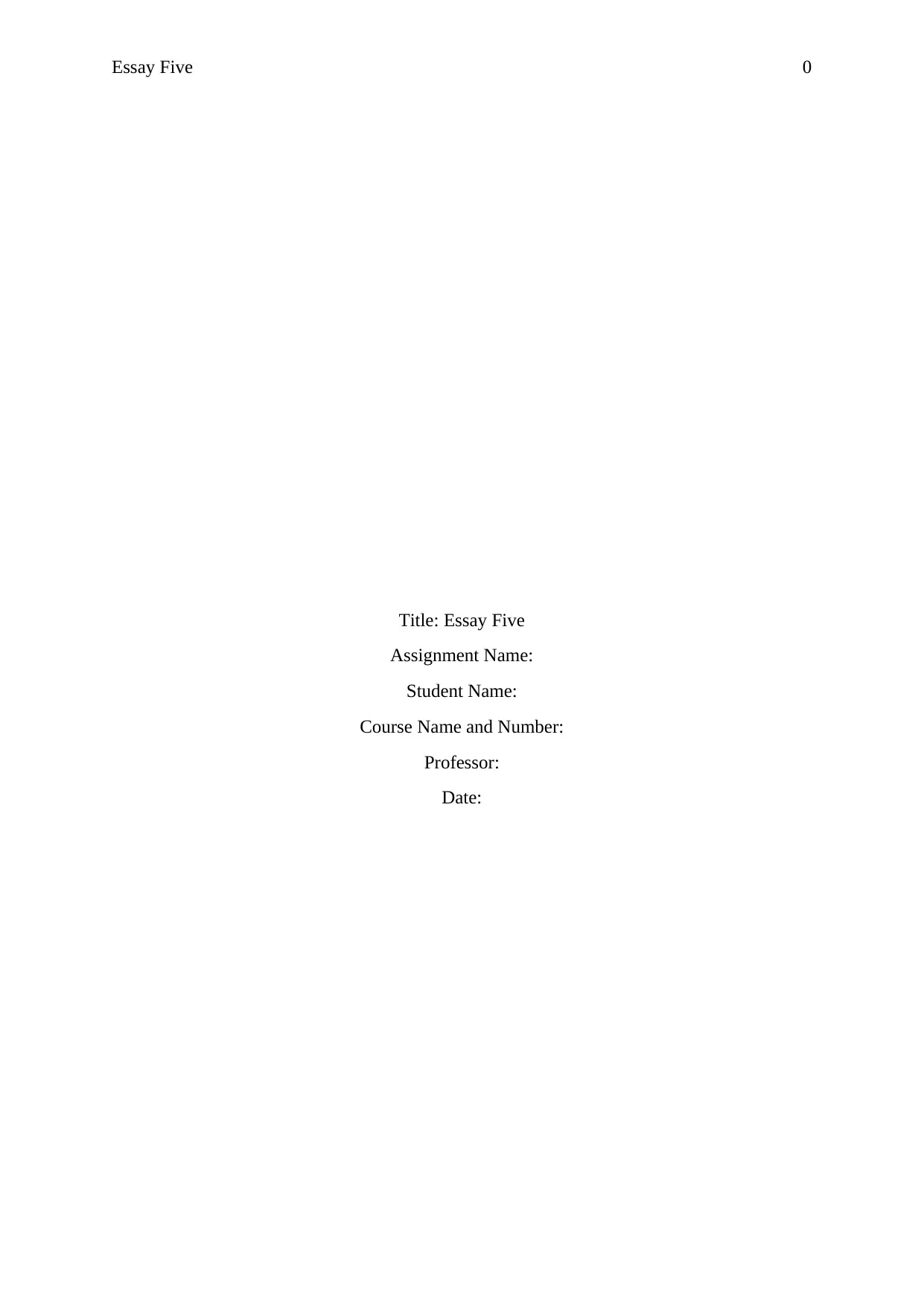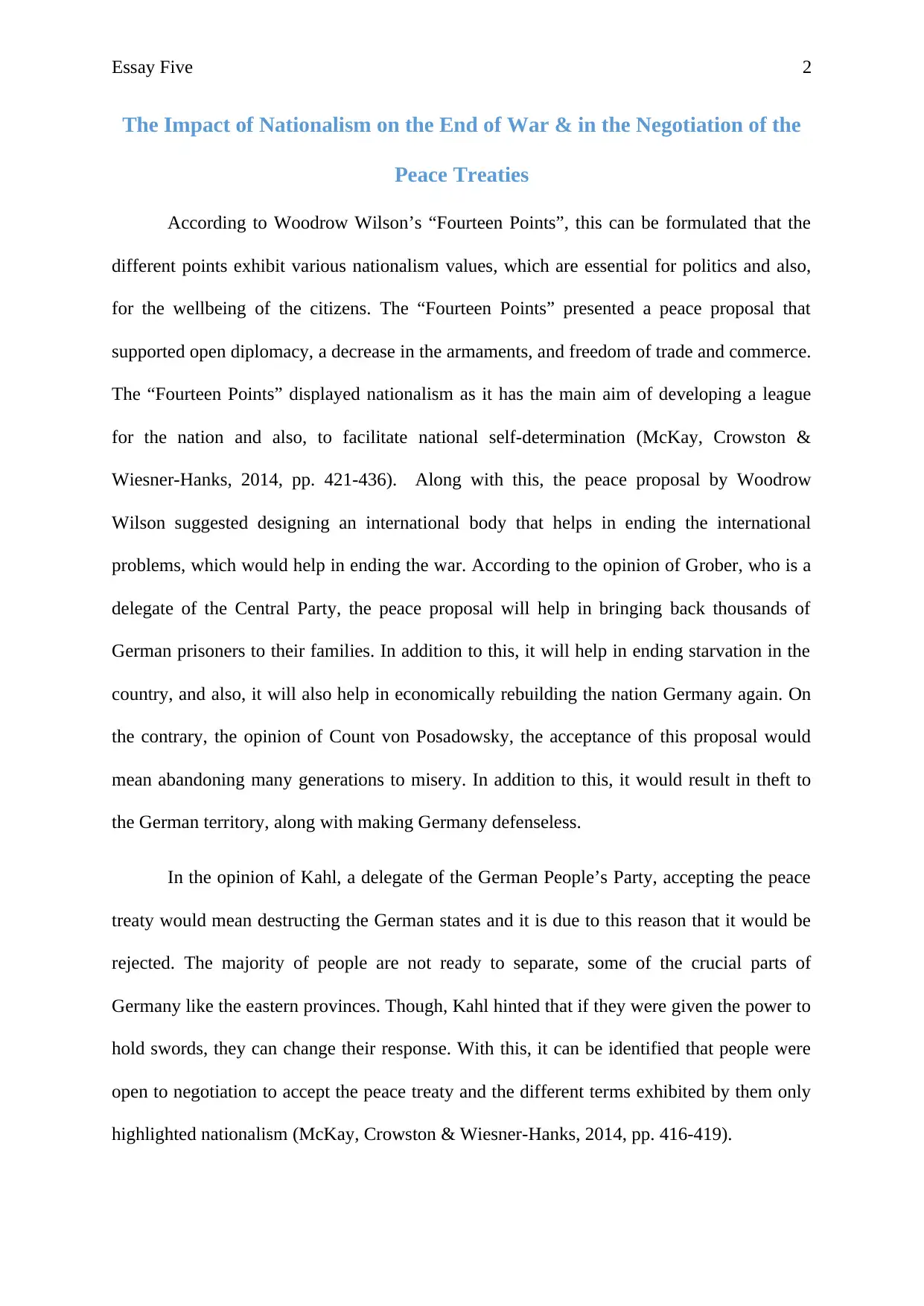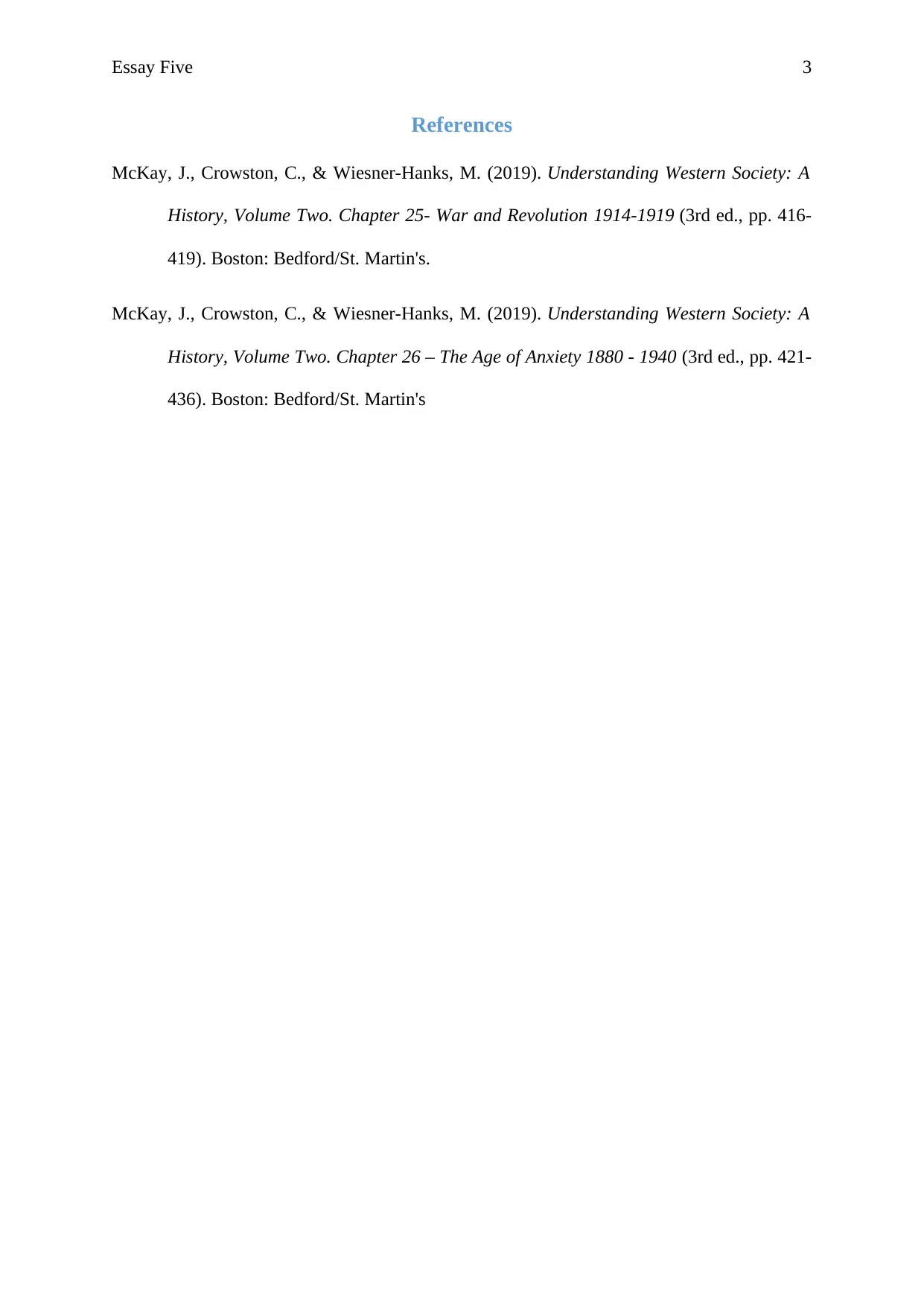History Course Assignment: Nationalism's Impact on War and Peace
VerifiedAdded on 2022/11/25
|4
|529
|162
Essay
AI Summary
This essay delves into the impact of nationalism on the conclusion of war and the subsequent negotiation of peace treaties, using Woodrow Wilson's "Fourteen Points" as a central framework. The essay analyzes how the principles of nationalism, such as national self-determination and open diplomacy, were reflected in Wilson's proposals and the reactions they elicited. It explores the varied perspectives on the peace treaty, highlighting the differing viewpoints of German delegates regarding the terms of surrender, the potential for rebuilding Germany, and the importance of national unity. The essay references historical sources to support its arguments, offering a comprehensive understanding of nationalism's role in shaping the outcomes of war and peace negotiations.
1 out of 4





![[object Object]](/_next/static/media/star-bottom.7253800d.svg)